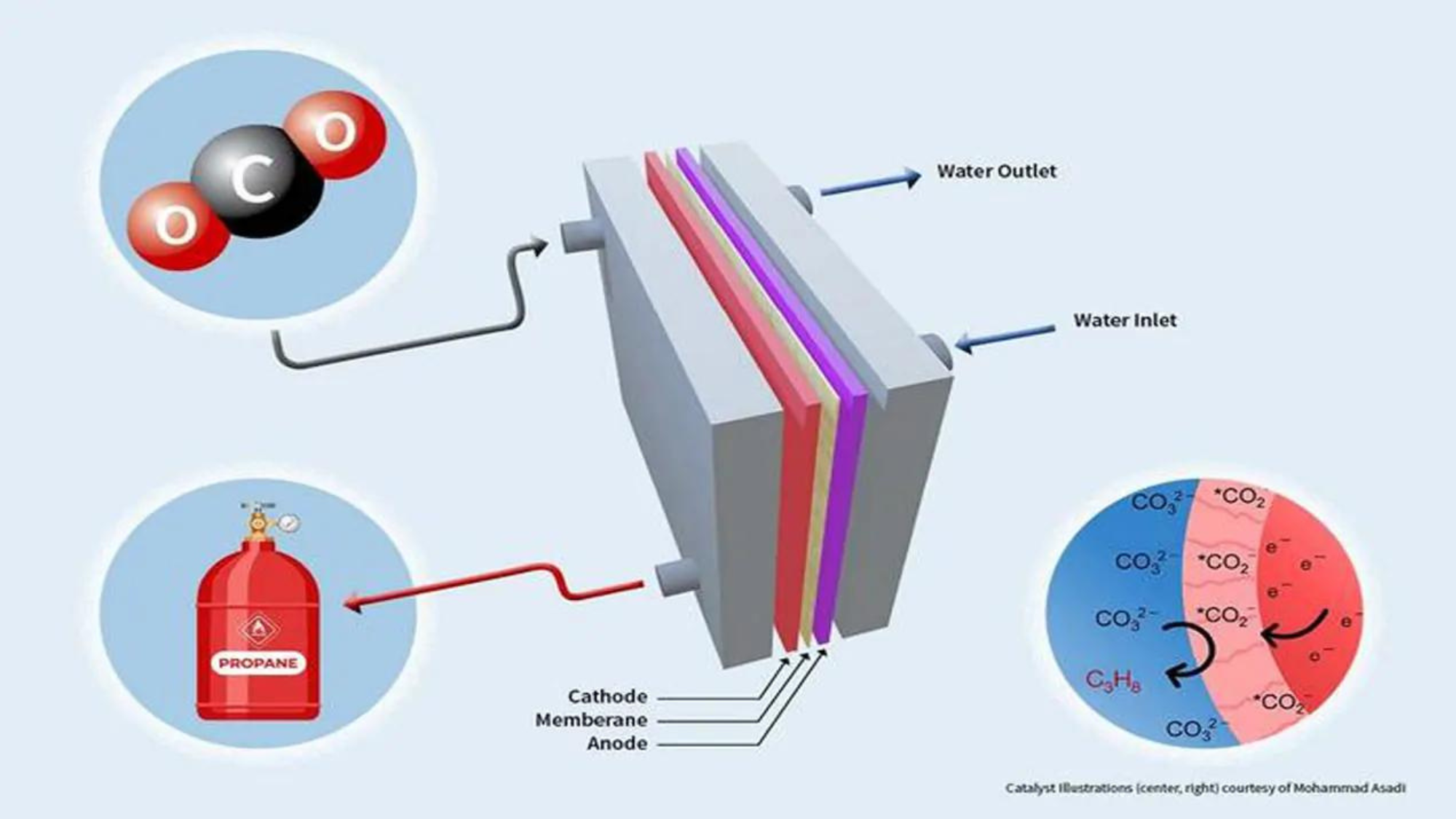A Revolutionary Approach to Green Energy: Transforming Carbon Emissions into Renewable Propane
In an era where the quest for sustainable energy solutions is more pressing than ever, a remarkable breakthrough from the Illinois Institute of Technology, in collaboration with the University of Pennsylvania and the University of Illinois at Chicago, stands out. This collaborative effort has led to the development of a groundbreaking method to convert carbon dioxide (CO2) emissions into renewable propane. The initiative is a beacon of hope in the fight against climate change, showcasing the potential of innovative technologies to harness CO2 – a predominant greenhouse gas – and transform it into a valuable, sustainable energy source.
The core of this revolutionary technology is an electrolyzer device that employs a cutting-edge catalytic system. This system uniquely combines tri-molybdenum phosphide (Mo3P) nanoparticles with an ionic liquid layer to facilitate the electrochemical reduction of CO2 to propane. What makes this approach groundbreaking is its unparalleled selectivity – achieving a remarkable 91% selectivity in converting CO2 directly into propane. This achievement marks a significant milestone in the field of renewable propane production, offering a scalable and economically viable pathway to generate a clean, versatile fuel from a pollutant traditionally seen as a challenge to mitigate.

This research not only aligns with global efforts to curb greenhouse gas emissions but also illustrates the tangible possibilities of renewable chemical manufacturing. By closing the carbon cycle, this method provides a sustainable way to continue utilizing essential chemicals like propane without contributing to the ongoing climate crisis. The practical applications of this technology are vast, ranging from home heating to powering aviation, underscoring the versatility and necessity of propane in daily life and industry.
The collaboration with SHV Energy to scale and distribute this technology underlines the commercial viability and potential impact of renewable propane on the global energy market. This partnership aims to bring this innovative solution to the forefront of the renewable energy sector, offering a promising alternative to fossil fuels.
As the world races towards its goal of achieving net-zero greenhouse gas emissions by 2050, the development of sustainable energy solutions such as this becomes increasingly critical. The pioneering work of Mohammad Asadi and his team paves the way for future advancements in green technology, demonstrating the power of ingenuity and collaboration in addressing environmental challenges.
The implications of this research extend far beyond the laboratory, offering hope for a sustainable future where renewable propane plays a key role in energy consumption. As we move forward, the continued exploration and investment in renewable energy technologies will be vital in shaping a cleaner, more sustainable world for generations to come.
Sources:
